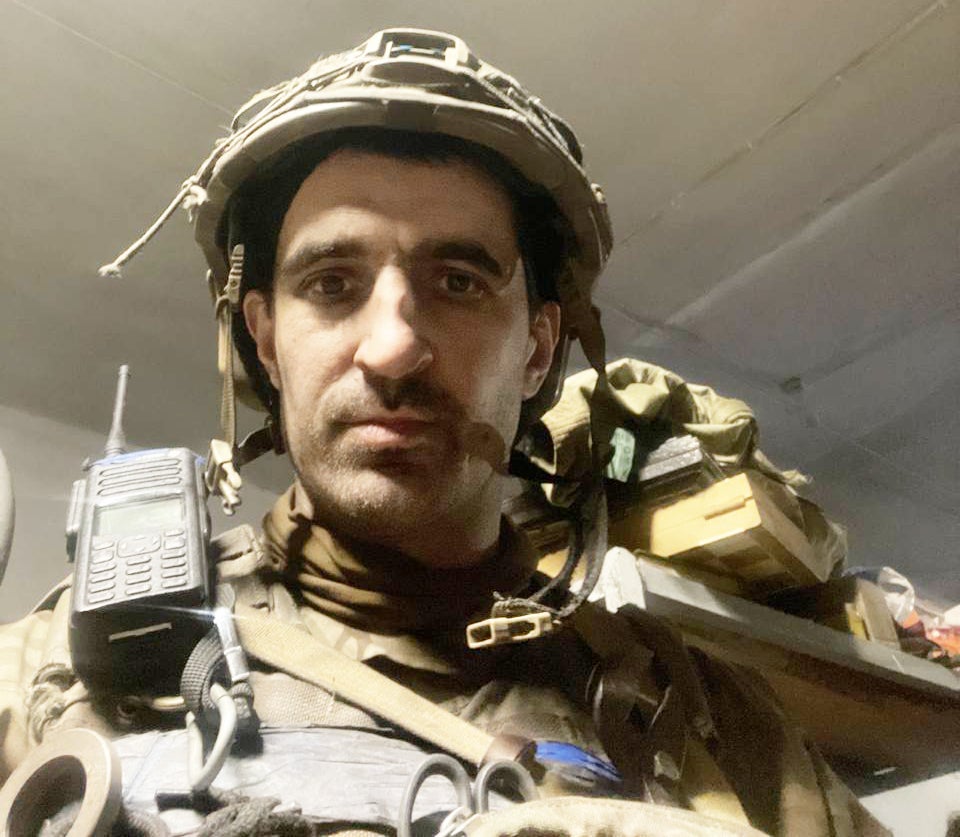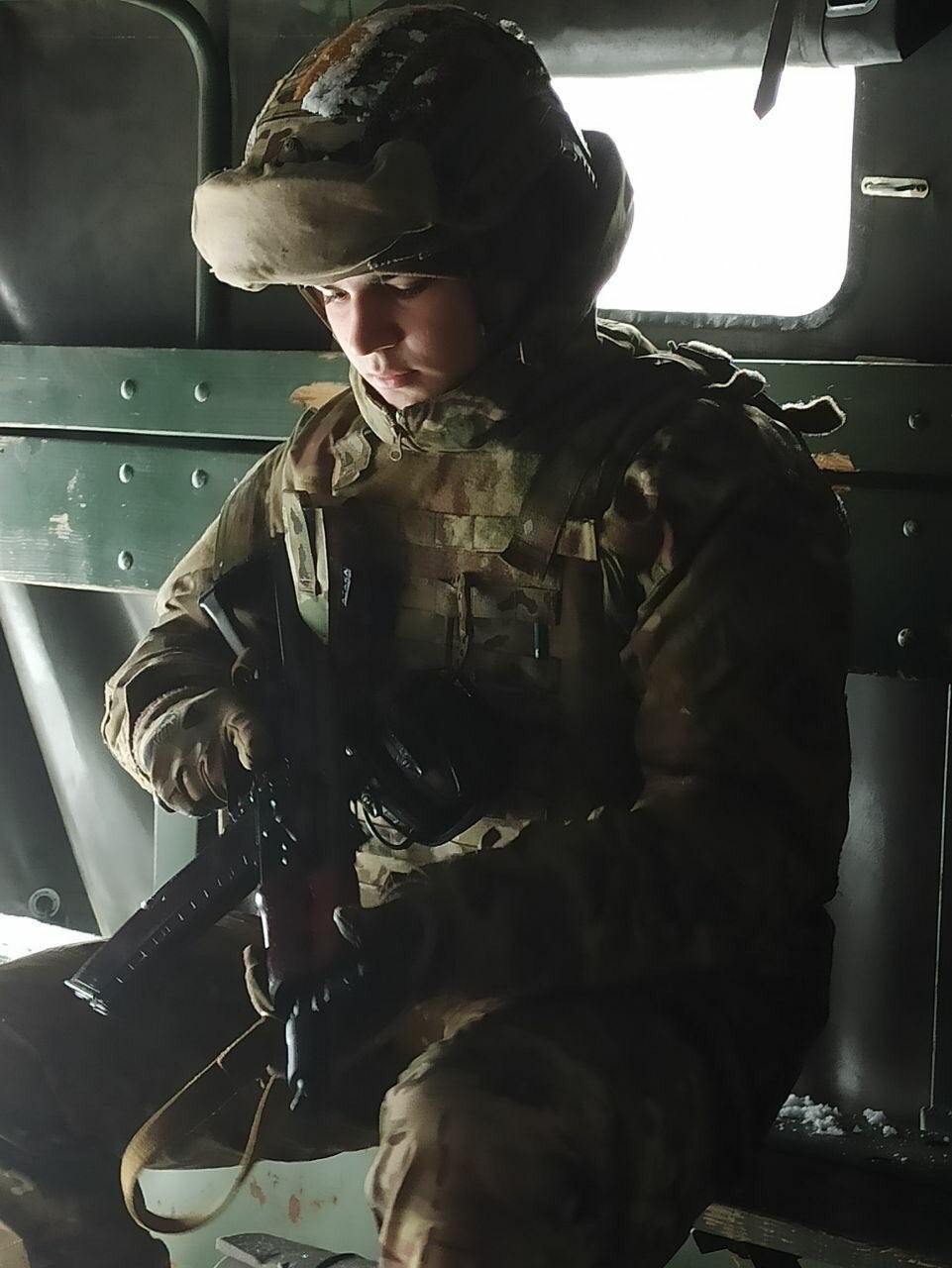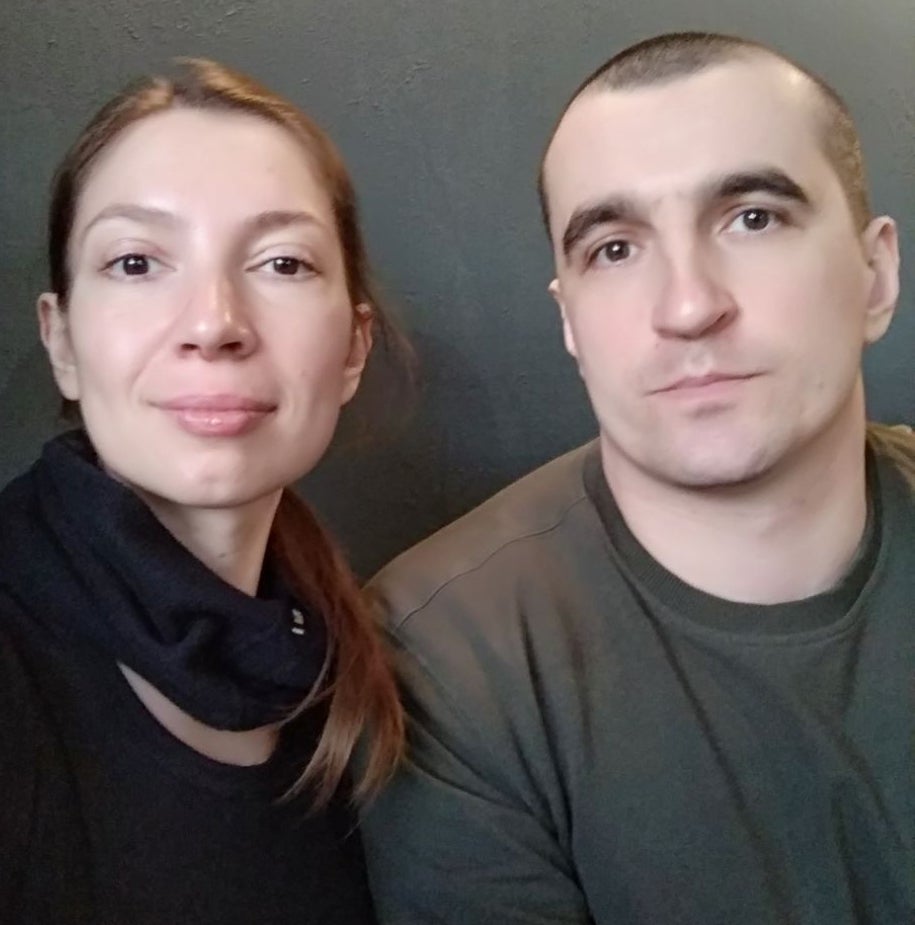
“I am alive, but nothing much more, the shelling is getting intense and the circle is getting smaller. We are dying here slowly, I feel like I am looking into hell. I am not sure how much longer we can carry on and I don’t know whether we will see each other again. Remember, I love you very much.”
This message was the last time that Nataliia Zarytska heard from her husband, Bogdan, who is among soldiers desperately holding out in Mariupol, surrounded by overwhelming numbers of Russian forces, pounded by air and artillery strikes and with little or no chance to escape.
A force of around 2,500 – more than 700 of whom are injured – is holed up in the sprawling Azovstal steel plant, much of which has been bombarded into a wasteland of twisted metal.
These fighters have become fodder for Kremlin propaganda – and also a focus of recriminations among Ukrainians in a rare instance of disunity since the war started, with accusations that the government of Volodymyr Zelensky has abandoned them.
Most of the elderly, women and children have been rescued from Mariupol under the coordination of the United Nations and the Red Cross. Around a hundred others are still there, according to local officials, with ongoing efforts to get them out delayed as the two sides blame each other.

Capturing Mariupol will be a rare triumph for the Kremlin in a conflict that has been largely and surprisingly unsuccessful since Vladimir Putin ordered the invasion of Ukraine on 24 February.
Control of the port city would allow Russia to open a land route of significant strategic value between the separatist republics of Donetsk and Luhansk, and the Crimea peninsula which it annexed eight years ago.
The Ukrainian troops in Azovstal are also a prize for Moscow. Most are from the Azov Battalion which has long been accused by Russia of being among fascists seeking to take over Ukraine. Killing or capturing them would fit into Putin’s avowed aim of “de-Nazifying” the country.
Some families of soldiers have formed support groups to lobby the Ukrainian government to organise an extraction from the plant. They have protests which have been broken up by the police with civil rights groups and the local media making accusations of heavy-handed action.
Mr Zelensky has insisted that international efforts are under way to secure safe passages for the troops and remaining civilians. The situation is “extremely difficult” but “we must not lose hope,” he added.
But in Azovstal there seems little expectation of rescue. “We have no hope left, only anger”, said one soldier, Nicolai, in a message to The Independent through Telegram. “We have been left here to fend for ourselves. We heard that officials are saying the government offered us a chance to withdraw. That never happened.
“The order, instead, was to hold the ground. That’s what we did, this gained time for other units to withdraw and also civilians to be taken out. We carried out our duty and we expect the government to carry out theirs.”

Ms Zarytska shared another message from her 31-year-old husband from inside the plant. It said: “We have 700 wounded here, 400 of them cannot move by themselves. The Russians are hitting us at their leisure, they are firing from a high point, and their planes are coming in low and slow.
“They have hit the area where the wounded are staying, killing some of them and injuring some more. It’s Dante’s inferno there. What are we supposed to do? Kill the wounded and then shoot ourselves? Better our commanders order us to shoot ourselves than surrender. “
In an extraordinary online news conference earlier this week, two Azov officers in the Azovstal plant accused the Zelensky government of failing to defend Mariupol and pointing out that surrendering to the Russians would mean the troops signing their own death warrants.
“Our government failed in the defence of Mariupol, failed in the preparation of the defence of Mariupol,” said Lieutenant Illya Samoilenko. “Surrender was not an option because Russia is not interested in our lives, is not interested in letting us live.” Sviatoslav Palamar, the deputy commander, claimed the government was being “ cynical” in celebrating the rescue of civilians when many more residents of Mariupol have been killed.
The Azov battalion itself posted photographs of injured soldiers showing how they were living in filthy conditions “with open wounds” and “ without the necessary medication and even food”. It said in a statement: “We demand the immediate evacuation of wounded servicemen to Ukrainian controlled territories where they will be provided with proper care.”
A public petition calling for the government to rescue the Azovstal defenders has collected 1.5 million signatures in a matter of days. Groups representing the soldiers’ families are approaching foreign governments, as well as Kyiv, with pleas for help. They are also contacting the UN and the Red Cross for assistance.
The Azov Battalion was integrated into the Ukrainian military after the separatist war eight years ago; many of its members and their families insist connections with the hard-right have been loosened. Recruitment is high, it is claimed, because the battalion is among the most professional in the Ukrainian forces, rather than for ideological reasons.
Ms Zarytsk, 36, had taken part in the demonstrations calling for a rescue. But she wanted to stress the aim of the families was to seek cooperation and not confrontation. One suggestion put forward is that the fighters could be evacuated to a third country – possibly Turkey, because of its proximity – where they would remain for the duration of the war.
Evgeny Sukharnikov, whose 24-year-old son is among the fighters in the Azovstal plant, said: “Every day is crucial now, the longer the wait goes on the more we worry about what may happen. We are all trying to find a solution. Surrender is not an option ; they are right to fear that the Russians may kill them, one can’t trust Putin.
“We really need international help now to save these people. We want countries with relations with Russia to intervene, this is a humanitarian crisis.”

Tatiana and Stavr Vyshnyak lived amid fierce fighting in Brovary, near Kyiv, when it became a battleground between Russian and Ukrainian forces. Their 21-year-old son Artem, stationed with the Ukrainian army in Mariupol, was in regular contact to check that they were alright.
“Now it’s our turn to be very worried”, Ms Vyshnyak, 43. “The civilians have come out of Mariupol, but we don’t know what’s going to happen to the soldiers, we don’t know what the Russians are going to do.
“These men have fought bravely for their country, the government must try to save them. I have my feelings as any mother would have about their children. My boy is 21 years old; the thought of him dying in a place like where he is now is a terrible feeling. So we keep thinking positively, we hope he and the others will soon be free.”

On 17 April Nataliia Zarytska married Bogdan via Telegram messaging. A female soldier, who had trained as a lawyer and whose own husband had been killed the day before, drew up the necessary documents and acted as a witness.
“My man had lost 20 kgs since being in Mariupol, he looked ill,” she said. “There was no ceremony, it was all very brief and even that time had to be short because the Russians attacked.
“It was hardly the wedding someone imagines having. But it was actually wonderful and made me think again how precious life is. I keep saying to Bogdan we are going to be together again, and have a family. I keep telling him he must not give up, he will get out of Azovstal, all of them will get out of Azovstal.”







